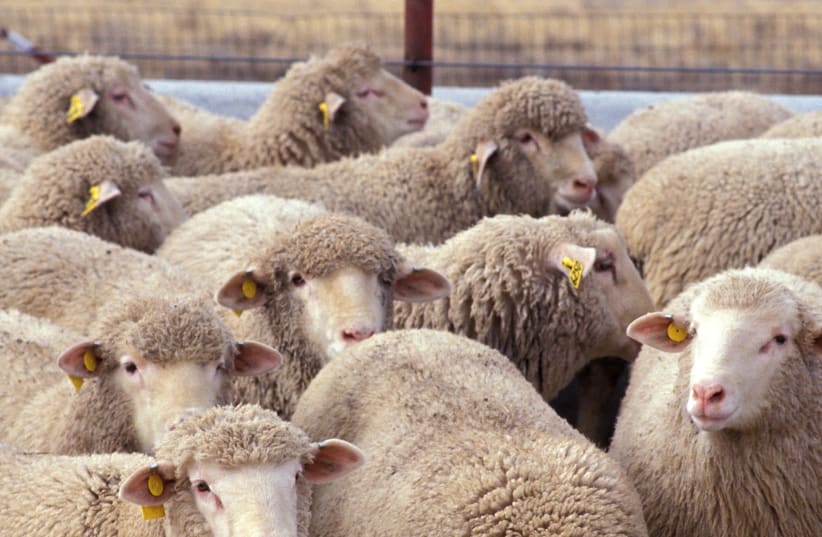Before we discuss that name and the significance of this Shabbat in our lives, let us remind ourselves again of our obligation during these difficult times – as the entire world is facing the spread of the coronavirus – to abide by the directives of the health and security authorities. If the authorities forbid gathering in synagogues, we must abide by these directives. Pikuah nefesh, the preservation of human life, overrides every other commandment in the Torah.
Therefore, everyone should pray at home and add a special prayer for the recovery of those who are ill: “Shabbat should afford you a respite from crying out in pain and you shall soon be healed.”
Likewise, everyone should read the parasha at home from a Bible or humash.
So, back to the Shabbat prior to Passover called Shabbat Hagadol. The halachic work Arba’a Turim, written by Rabbi Ya’acov ben Asher in the 13th century, cites the reason for this name: Before the Jewish nation left Egypt, the people were commanded to take a sheep and make it the Passover sacrifice in order to eat it on the night of the 15th of Nisan. The sheep was purchased on the 10th of Nisan, which fell on a Shabbat that year, and it was a risky endeavor, since the sheep was one of the Egyptian nation’s idolatrous symbols. The Jews got the sheep and the Egyptians did not harm them, and in memory of that miracle, this Shabbat is called Shabbat Hagadol.
It is interesting to note that the sages saw the taking of the sheep and its being set aside as the sacrifice as an event of deep significance. Moses directed the Jewish nation as follows: “Draw forth or buy for yourselves sheep for your families and slaughter the Passover sacrifice” (Exodus 12:21). In the Mechilta – the midrash of the Tannaim on the Book of Exodus – they expound: “Draw forth your hands from idolatry and cling to the commandments” (Mechilta D’Rabbi Yishmael, Tractate D’Pis’ha, 5).
When the Jewish nation was in Egypt, the people were in a pretty low spiritual state. The nation was swept along by the idolatrous Egyptian culture, and participated in the idol worship that was customary in Egypt at that time. This event, which demanded that each Jew take a sheep, which was an idolatrous symbol for the Egyptian nation, and set it aside as a sacrifice – forced each Jew to decide: Where do I belong – to Egyptian culture or to Jewish culture? By taking the sheep as a sacrifice, the Jews abandoned idolatry and chose Jewish faith. It is possible that this major and significant decision is also what earned the name Shabbat Hagadol.
And here we are, 3,000 years later, and the entire world finds itself in a most unusual situation: millions of people have to close themselves off in their homes and be quarantined because of the coronavirus. Hundreds of thousands have fallen ill, and, sadly, many thousands have died as a result of COVID-19. As Jews of faith, we do not see events as blind fate. We try to find the significance in events, to hear the call that God is calling out to us through natural occurrences.
It seems that the main lesson humanity is learning nowadays is that we shouldn’t count on the system to work for the individual. People understand that whoever doesn’t take care of himself, others cannot do it for him.Whether you live in a country where the health system is on the verge of collapse, or in a country where it’s in better shape – no one can be sure that he will not catch the virus, and no one can be sure that the state will be able to treat him. It seems that the near future is one in which people will have to take care of themselves and of their immediate family, relying less on the state and the health and security systems.
As Jews of faith, this holds a special message for us: Often we are used to leaning on the sense of security we get from our community, our synagogue and our social and religious institutions. Sometimes this false sense of security leads to us not investing in our personal relationship with God. The undertow the world has gotten caught in is forcing each of us to be much more independent, to take care of ourselves, not only as far as health is concerned – though this is obviously crucial and necessary – but also as far as our spiritual well-being. We are each told to pray without our synagogues, to study Torah without our regularly scheduled shiur (class), to invest in our families, in our marriages and in our children’s education.
This is the time to really think about how we want our children to be educated, and to examine if we are being consistent and practical in achieving our goals. Because if we don’t take care of ourselves – who will?
We hope and pray, along with all of humanity, that the Holy One, blessed be He, will say “Enough!” to all our hardships, and we will merit complete redemption, speedily. Amen.
The writer is the rabbi of the Western Wall and Holy Sites.
